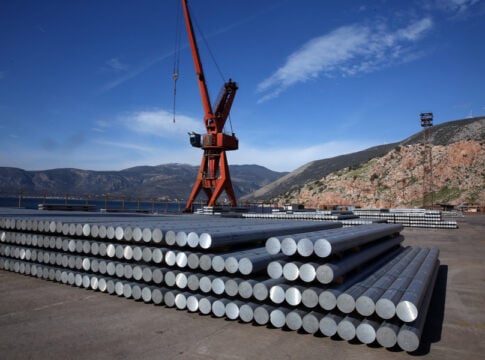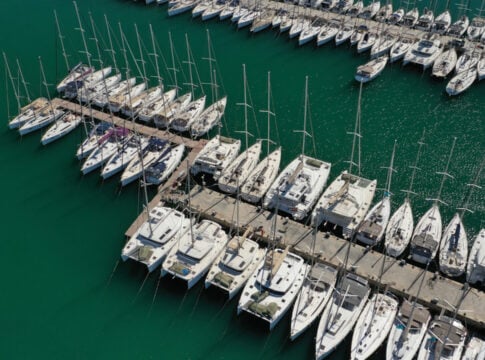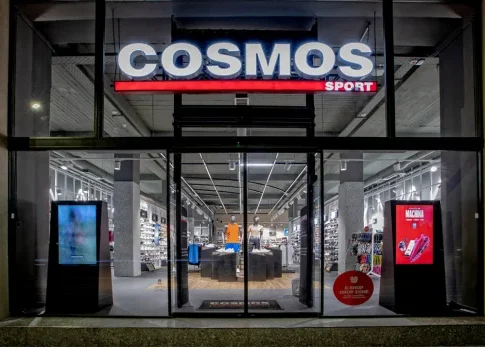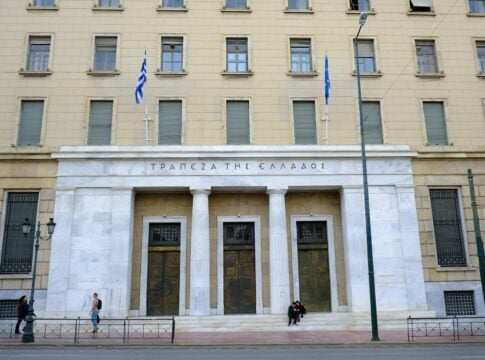The first signs of the transatlantic trade war between the US and the EU are causing deep concern in the commercial world with the announcement of tariffs on steel and aluminum, as well as the intention of President Donald Trump to impose high port fees on ships built in Chinese shipyards, the president of the Piraeus Chamber of Commerce and Industry (ECCI), Vassilis Korkidis, stated.
As he noted, “the impact of this policy reaches almost 2.2 trillion dollars in trade transactions.”
The US tariffs on steel and aluminum will hit Canada and Mexico the hardest, but also the EU, as America’s number 3 steel supplier, will not be left unaffected.
What is certain is that a large-scale trade war creates ripple effects and a “domino” of inflationary pressures.
Aiming at “protecting” the European economy, the EU published a 99-page list on which tariffs could be imposed, describing, among other things, products such as food, meat, poultry, dairy products, oils, fruits and vegetables, and alcoholic beverages.
Also included are plant machinery, vehicles and motorcycles, wood products, plastic products used in real estate construction, processed wood products, stationery and school supplies, travel goods, window frames, spices, cotton, wool and knitted goods, leather, packaging goods, sports goods and sportswear, glass products, electrical appliances and many more.
According to the “defensive” announcement by the Commission, the countermeasures or retaliation, which may be activated in April in two stages, are initially 8 billion and an additional 18 billion euros, affecting a total of 26 billion euros in US exports, while they far exceed the corresponding ones during Trump’s first term.
According to Korkidis, “it is obvious that the EU is launching a series of countermeasures, trying to protect European businesses, workers and consumers from the impact of the trade restrictions that were first imposed by the US with tariffs of up to 25% on imports of steel, aluminium and certain products containing steel and aluminium.”
At a time when the European economy is trying to find its stride towards growth, the new order of things that the US is trying to establish will have a serious “collateral loss”, consumers.
This is because in addition to the increase in prices that will occur, the boycotts of products and services that have already begun will hit many businesses and will endanger a significant number of jobs across the spectrum of industry and trade, while it will seriously disrupt supply chains and tourism.
The Piraeus Chamber of Commerce and Industry believes that the European Union, in order to protect consumers and businesses in the EU-27, must choose negotiations as its action and not retaliation through the exchange of tariffs, as it is well aware that tariffs are taxes, emphasized Korkidis.














